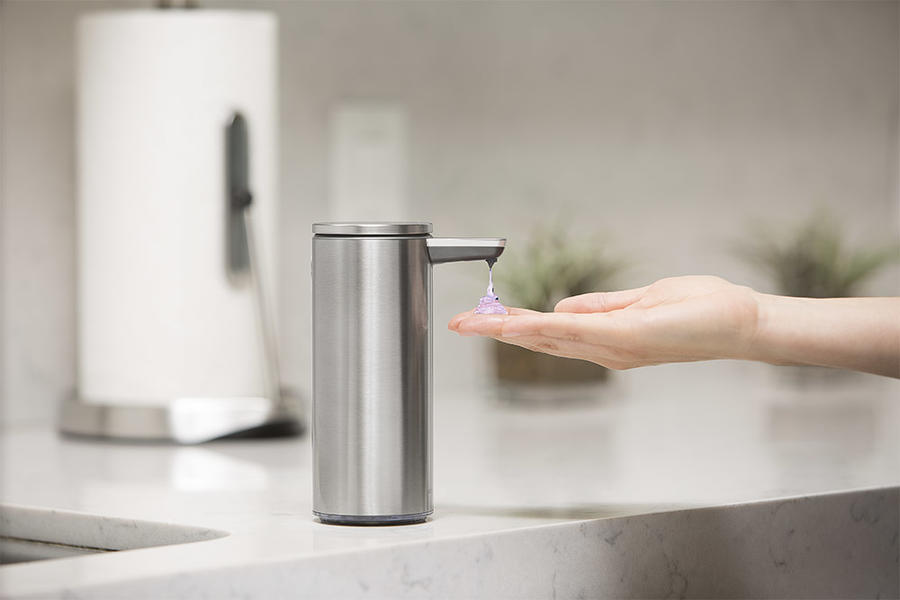If there was ever a moment for touch-free products in the home, it’s now. So it’s no wonder that Simplehuman, which puts a sleek spin on home essentials like dish racks and shower caddies, can hardly keep its sensor-activated soap pumps and trash cans in stock. “We started introducing touch-free items more than a decade ago out of a belief that if something can be germ-free, it should be,” says Simplehuman founder Frank Yang.
While initially embraced in high-traffic commercial settings, touchless soap dispensers and voice-activated trash cans are now showing their value in the home. When the coronavirus started making its way through the United States in March, Simplehuman, like most retailers, saw a run on their stock of hand soap, which comes in pouches and cartridges that fit its products. After the initial panic purchasing subsided, the spike in sales shifted to the touch-free dispensers, which, as hand washing became the new national pastime, suddenly appealed to the masses.

As the pandemic progressed and workers fighting on the front lines faced dire shortages of essential supplies, Yang saw a chance to help by donating soap and pumps (which can also dispense hand sanitizer) to overburdened health care facilities like The Brooklyn Hospital Center in New York and University Medical Center New Orleans, in addition to nursing homes and hospice facilities. “We were thrilled that people were buying our products, but we saw the opportunity to get [them] into people’s hands who needed it,” says Yang.
The emphasis on charitable donations has meant delaying fulfillment of some of the company’s online orders, a choice that was difficult but that Yang felt was the right call. “It’s become a matter of: Who needs it the most? Where can it be the most beneficial—to someone on the front lines or to someone in their kitchen? Our product can help people stay healthy, so that’s what we need to focus on.”
The crisis has led Yang and his team to think more broadly about touchless products and where dispensers might be useful. With the coronavirus likely changing the way people think about hygiene moving forward, could there be a market for a hand sanitizer pump that fits neatly into a car, or wall-mounted hand sanitizer dispensers for the home? “It’s definitely more personal now,” says Yang. “Before this, there was a very specific market for these products, but now, more people want them—and they want them everywhere.” The company is also researching development of its own hand sanitizer, which has proven a tough task in large part because the ingredients are currently in short supply.
While many of the Torrance, California–based company’s products are manufactured in Asia, Yang says that Simplehuman has been able to make up for COVID-19-related delays in production with expedited air freight shipping and are catching up to consumer demand. “You want to do everything for your customers but still be able to donate to the people who need it,” he Yang. “It’s a difficult balance, but we’re just excited that our products can be useful during this time and that we can help play a small part in preventing this illness.”
Homepage photo courtesy of Simplehuman





























